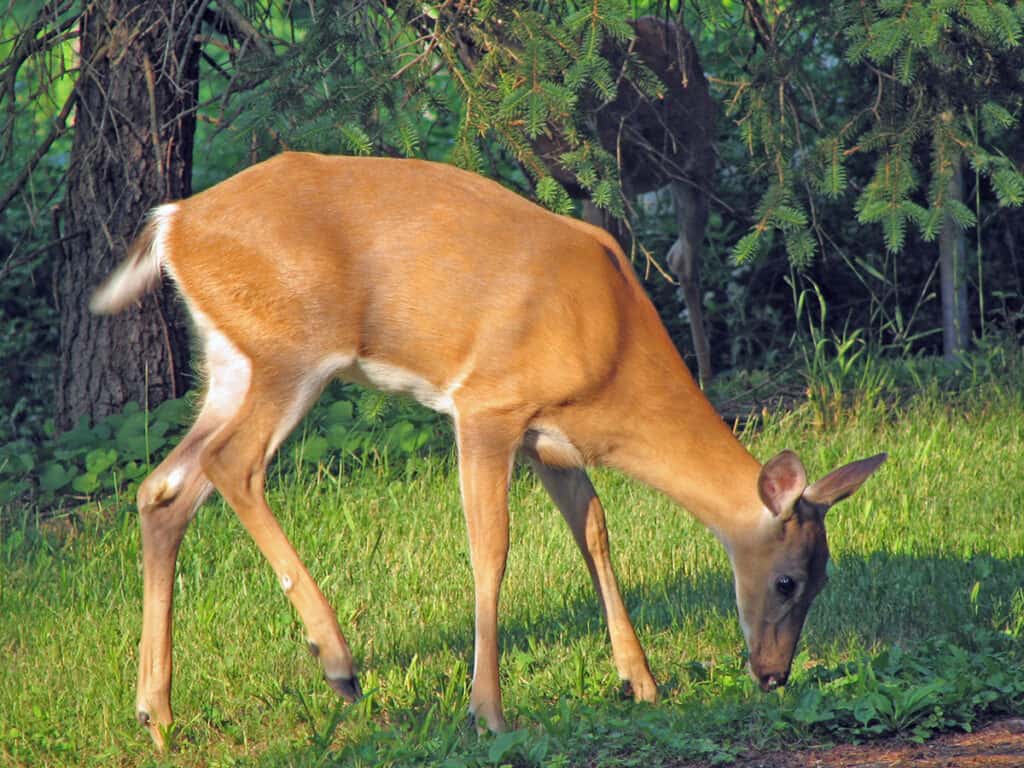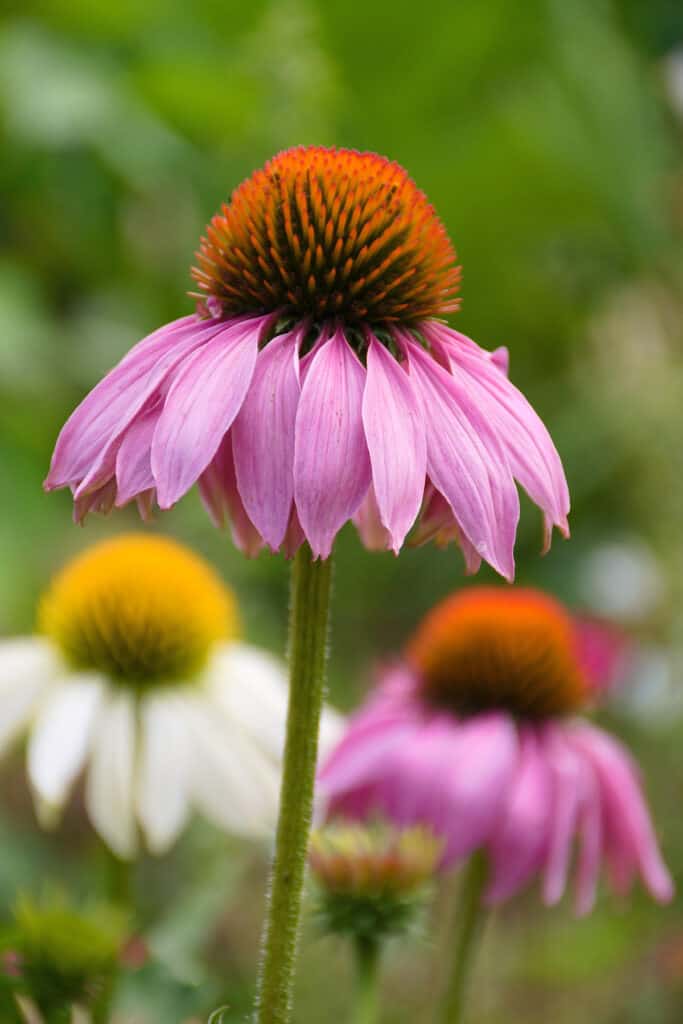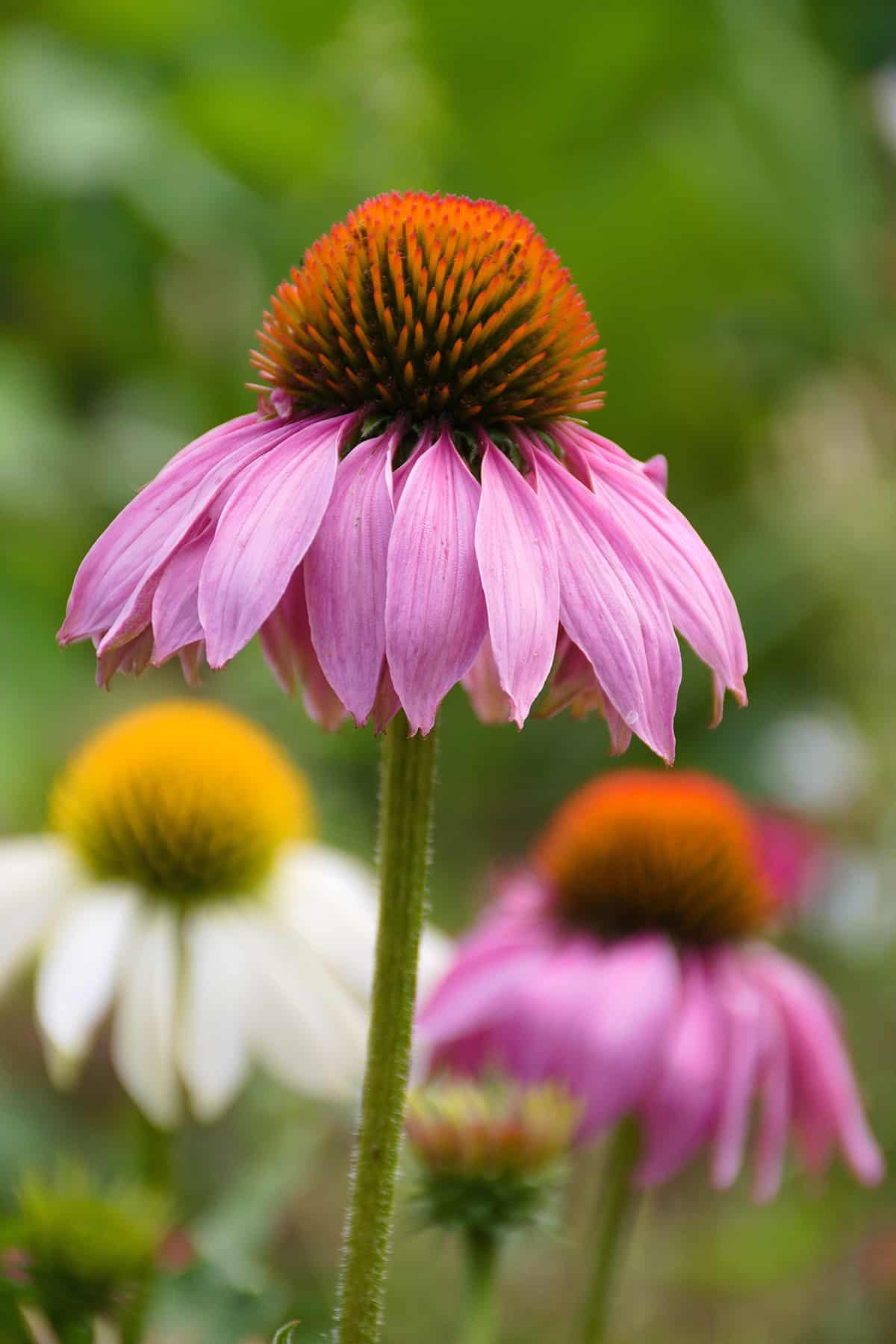Deer take a toll on many area gardens, as the population expands and development shrinks the amount of open space on the East End. These days they trot around in neighborhoods. And they eat more and more kinds of plants as their habitat shrinks.

One way to keep them out of your garden is to use deer-resistant plants in your gardens and landscaping. Another tactic is to put plants that you and the deer both love in hard-to-access areas close to the house — in an enclosed courtyard, perhaps, or up on an elevated deck. Check out the list of plants deer are less likely to eat, though the list has been growing shorter as more woodland areas are being developed. There are no guarantees these days.
When deer are hungry enough, they will eat just about anything. I’ve known them to chew rugosa roses, which have very thorny stems, nearly to the ground. Deer are usually hungriest at the end of winter when food is hard to find. You may find them coming onto your property then even if they don’t bother you the rest of the year.
Scent-based repellents can be effective, but you have to reapply them after rain washes them away. Sooner or later the deer will get used to the smell, too, so you have to switch products often. It is a good idea to spray new plants when you plant them, even if they’re considered deer-resistant. Some people have been known to hang bars of deodorant soap in the bushes or suspend bags of hair clippings from tree branches. These methods seem to work reasonably well for some gardeners and not at all for others. Plus they’re hardly aesthetically pleasing.

The only way to really keep deer out of your garden is to fence it in. You need a high fence — 8 to 10 feet — or the deer will leap right over it. You may find the best solution is to install black plastic mesh deer fencing all around the perimeter of the property. This kind of fencing can be camouflaged behind tree and shrub plantings, and it does work. But you’ll need tall gates to close the driveway, too, or the deer will stroll right in.
Plants that have traditionally been deer-resistant and worth a try:
Anise hyssop (Agastache)
Astilbe
Beebalm (Monarda)
Calamagrostis
Catmint (Nepeta)
Coneflower (Echinacea)
Liatris
Lilac
Lungwort (Pulmonaria)
Ornamental grasses
Ornamental onion
Pot marigold (Calendula)
Russian sage (Perovskia)
Salvia May Night
Sweet alyssum (Lobularia)
Verbena
Yarrow (Achillea)






